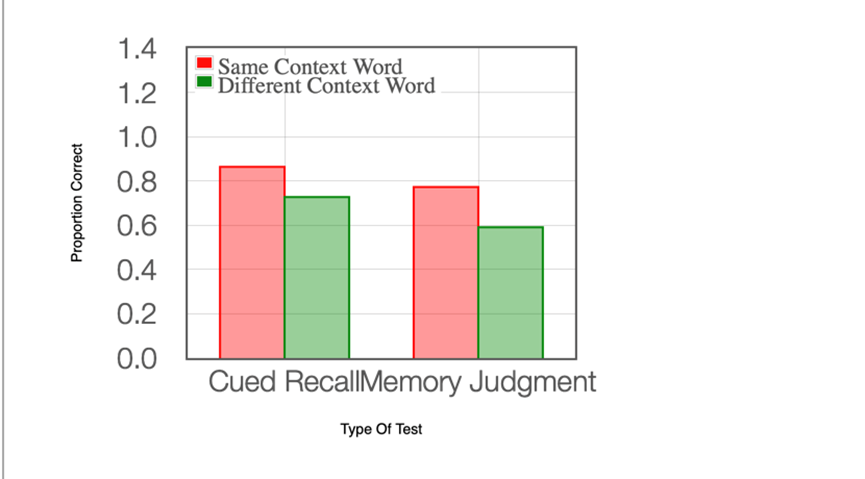Introduction
The experiment aims to contribute to the understanding of the “forgot-it-all-along” effect that explains people’s failure to recall memories about events they kept in mind in the past. Therefore, by conducting it, the investigator tries to answer the question of whether the underestimation of knowledge related to an event is connected with forgetting it later. In this case, the results may reduce the knowledge gap in Cognitive Psychology related to recovered memories by providing insight into the occurrence of this phenomenon. On the basis of the effect’s theory, it is predicted that the experiment’s outcomes will demonstrate the inaccuracy in remembering in relation to past events that leads to its forgetting.
Methods
The ability of the investigator to remember previous information was evaluated with the use of the computer memory test that consisted of three phases – the first phase implied the demonstration of word pairs, the context and target words, that should be written and remembered. The second phase, a cued-recall test, introduced cues for second words in pairs for its recollection. Finally, in the third phase, the memory judgment task, the investigator was asked to assess his memory in relation to word pairs, while the context words did not always correspond with target ones as they were presented in pairs.
Results
On the basis of test completion, the investigator’s results are visually presented in Picture 1. In particular, the proportion correct scores in the cued-recall test with the same and different contexts are 0.864 and 0.727, respectively. In turn, the proportion correct scores in the memory judgment task with the same and different contexts are 0.773 and 0.591, respectively. The lower proportion correct scores in both tests regarding the different context demonstrate a lack of focus on a context word in the process of remembering.
Conclusions
The conducted experiment supported the hypothesis concerning the relationship between the underestimation of knowledge related to an event and its forgetting. According to the results, a person focuses predominantly on a target word ignoring a context one – thus, the manipulations with the latter may lead to its forgetting. In the same way, people may have recovered memories and forgotten events in the past due to a lack of their importance. However, while outcomes may be affected by a participant’s poor memory in general or inability to remember information in a short period of time, additional memory experiments should exclude these potential limitations.
